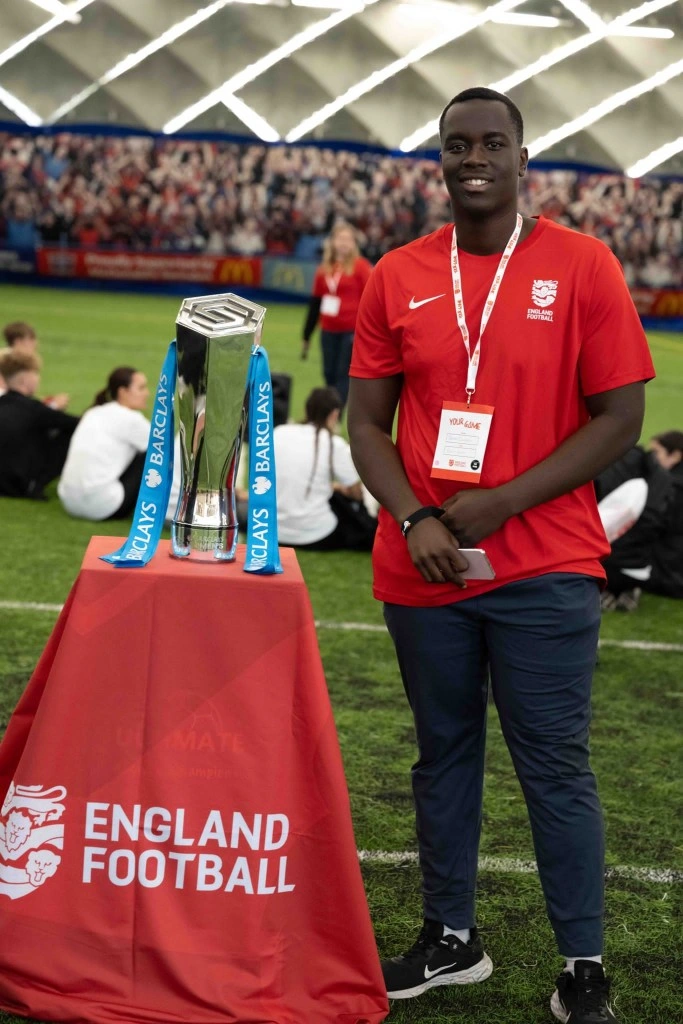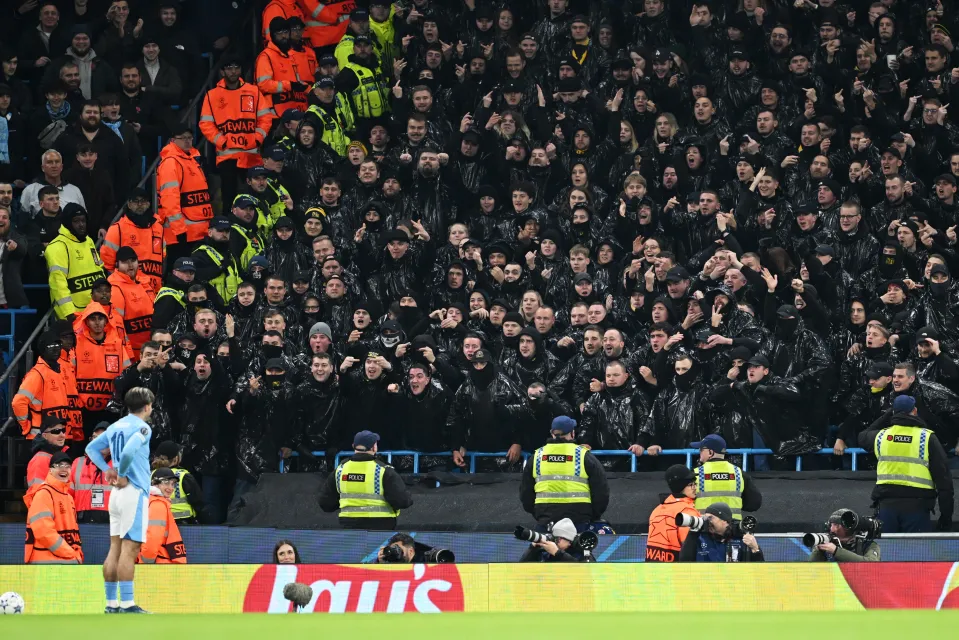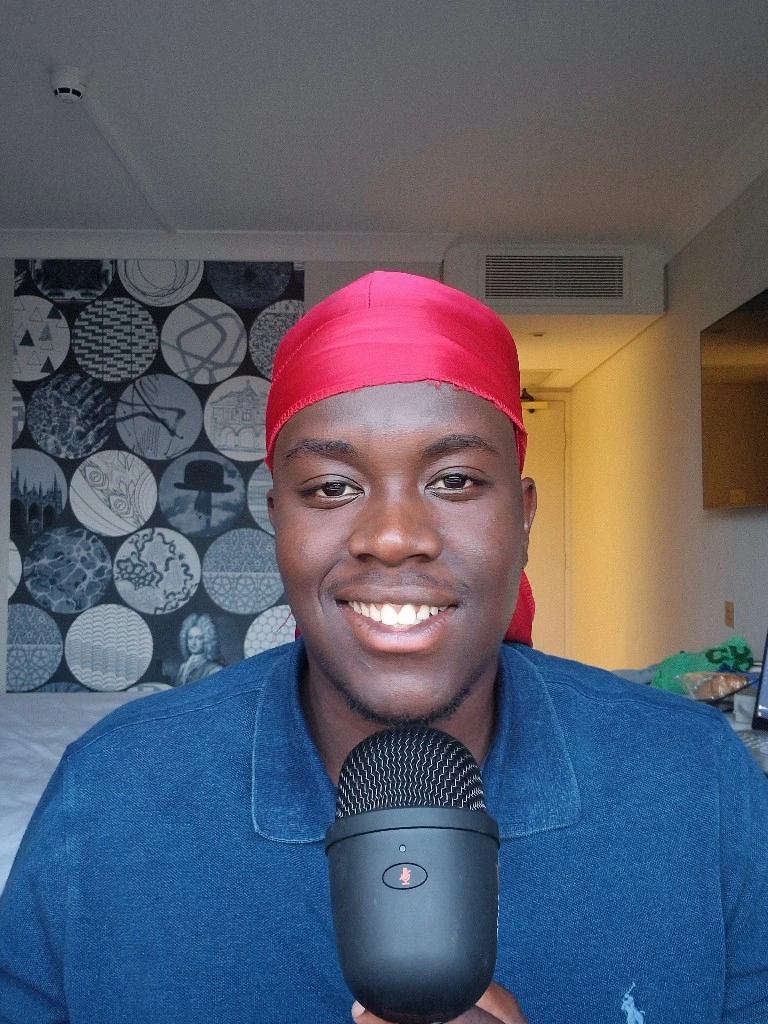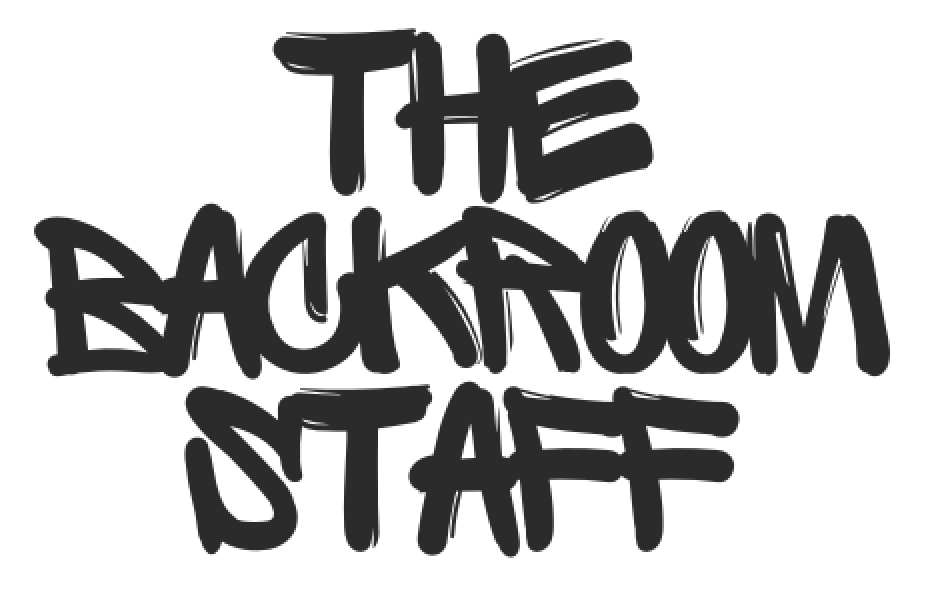"Football without fans is nothing," legendary Celtic manager Jock Stein famously said. Indeed, football matches worldwide draw diverse crowds - from families and casual spectators to die-hard supporters and ultras. For many, it's more than entertainment; it's a community, an escape, a 90-minute reprieve from life's pressures.
Still, tensions and emotions can run high and there can be real risks. In this interview, I spoke with David Chimbaza, a steward at Manchester City, one of the world’s top clubs. While you may have seen people like David at matches, their crucial role often goes unnoticed and undiscussed. He pulls back the curtain on one of football's most visible (literally) yet least understood jobs and shares a glimpse into the intricate operation that allows fans of all kind to feel safe and enjoy football live.
David is also the founder of DTC Media and the host of the Bursting Into The Scene podcast where he helps demystify jobs in football by sharing his own journey and enabling others to share their experiences.
The interview has been condensed and lightly edited for grammar and clarity.

[ What does a steward actually do? ]
It's quite multi-layered. The overall purpose of being a steward is to protect supporters. That's the fundamental aspect.
Obviously, you've got people coming in (to the stadium) under all kinds of different mental states. Some people, they drink a lot or take drugs, let’s say they’re under the influence. You have to make sure you protect them as well as families, tourists and other supporters. It's such a diverse range of people that come to football games. Every single game is different, it depends on who you're playing against as well.
So you always have to be aware that your number one job is to make sure everyone's safe and everyone follows procedures. You do that by working with your team. We have, I don't know how many, there must be like a thousand stewards on a match day.
The stewards are divided by stands, there’s four stands and you work within your own stand and unit. There’s many different roles within each stand. So you might be working in the concourse areas where the fans sit - where you can see the game - sometimes you might be working on the perimeter of the pitch - facing the fans - and making sure no one runs onto the pitch, or you might be working outside the ground on ticketing, making sure that obviously people don't come in with false tickets.
You don't know what you're gonna get when you go into the ground and every role is different which is quite exciting, because it's not the same every game. But the fundamental priority is always to make sure everyone's safe, has a good time and goes home safely. That's the most important thing.
"The overall purpose of being a steward is to protect supporters"
[ What attracted you to this job? ]
I think 2 reasons. One, it's Man City, when thinking about getting into the (football) industry - obviously Manchester City is such a recognized club. And two, immerses you in football - it's a good people watching role but you get to see how people behave at a football match. There's so many different variations of behavior. So that, not just watching football, but seeing how people behave in that atmosphere drew me in.
Of course, it also supported me alongside university but with where I wanted to go, for my journey, this makes a lot of sense. At a base level, I understand how football works a bit more, it just gives you that different perspective.
[ What’s something a ‘normal’ fan doesn’t see? ]
There's probably something during a game called a ‘walk down’. Maybe it’s different at different clubs but I’ve seen it at Manchester United and Liverpool too - every 10 to 15 minutes, all the stewards go and walk down and back up. It’s a surveillance sweep to make sure there’s no trouble and everyone is safe. It’s something you probably don’t recognize as a fan but it’s actually really important.
It's meant to be in harmony but sometimes if you don't get the memo or forget, you can’t get away with it because you’re in a bright orange coat!
Also at the end of a game, you’ll see stewards walking down around the perimeter with maybe 10 minutes to go. That’s a safety procedure to prevent anyone running onto the pitch at the end of the game. Some might think the stewards will be off guard, let’s try and run on but that’s quite a high risk situation so we have to be prepared.
[ What are the most common ‘infringements’ that these sweeps uncover? ]
Most of the time it’s people drinking in the stands - here in the UK you can’t drink in the stands. And things like smoking or vaping but also arguing or fighting, because that can be quite common, especially if the team's not doing so well or if the stakes are a little bit higher and everyone's a little bit more anxious - you’re more at risk of fighting.
So it’s quite simple but it’s really important because if you don't do it, then it sets that tone that they can get away with a bit more. And you know how it is, if someone's drinking during the game, obviously there’s more risk. It’s about protecting them and the people around them.
[ If you see someone drinking for example, are you the one who speaks with them? ]
Yeah, I'll do it myself, because that's quite a low level thing. We'll just say, ‘look, you can't drink here, could you please go back into the concourse?’ Because you can drink inside the terraces in allocated drinking areas but not in view of the pitch. They try and sneak their drinks through and are clever about it but 9 times out of 10 they are like, ‘yeah, that's fine’.
In more extreme scenarios, or if they refuse, I can call a senior team member. There are also certain stewards, called ‘ejection teams’ that are trained to remove people from the ground. They’re really good and you wouldn’t even notice them!
[ Are there different security ‘ratings’ for different matches? ]
Yeah, the bigger matches, like derby matches, are categorized as high risk. It’s very rare a game will be ‘low risk’ - maybe a friendly or against a lower league team in the FA Cup or something. Most games are medium, and then high risk are the big matches. That doesn't mean we have to do anything fundamentally different but we just have to be more alert. There might be more police but we don’t add more stewards. For the bigger games, you have different people coming to the games, it’s more intense and more ‘hardcore’ fans who are more emotionally invested and it creates a higher risk.
One thing that's becoming more prominent is away fans in home ends. For example, in the derby, you have Man United fans in the Man City end. If people find out, it can be a big problem. It can be hard to decipher because people can be really clever about it but if they’re found out, it can be really unsafe.
[ What happens if you see this? (a United fan in the City section) ]
Straight out. There's no tolerance. You can’t just tell them, ‘look you have to be more quiet now’ - everyone around them knows, and the City fans are really quick to tell if you’re not a City fan. For their own safety they need to leave. We don’t move them to a new seat, if we find you, you’re out because you can’t stay there. Some might think it’s harsh but you don’t want to be in that situation.
[ Are there different rules for different competitions - especially the Champions League? (e.g. in Germany, fans are allowed to drink and smoke and it’s ‘common’ to see e.g. flares) ]
I would say the Champions League games are probably the hardest to police. In the Champions League, because it's run by UEFA and not Manchester City, there's more likely to be away fans in the home sections. I don’t know why that happens personally but that’s something we have to deal with.
You’re still not allowed to have flares in the stands but it’s quite traditional fan culture for lots of Europeans so they do it anyway! It’s really hard to police. Usually I work in the City section right next to the away fans and we often end up with situations where they (the away fans) have loads of flares.
(for example) When the Swiss team Young Boys came to the Etihad they had these cool black bags and it's part of their tradition to mask up. You wouldn't really get that in English football. You get fans that come into the ground and try to drink their section and you have to explain that it’s not allowed here. So on one hand, it's really cool because you get to see fan cultures that you wouldn't see here. But, on the other hand, it means it's really difficult to police even if the rules are ultimately the same.

[ Do you actually work for Manchester City or is it outsourced through a security or events company? ]
I work for and am employed by Manchester City but there’s both. They outsource certain roles to different security companies. The ‘ejection team’ I mentioned comes from an external company.
So while everyone is in orange, in the same jackets, every team is different but it’s really well managed, really organized. We never have a situation where we clash or don't know where to go or what to do.
[ Do you have a radio or phone to talk to other stewards? ]
It depends on your position, some senior stewards will have radios but we generally don’t. Inside the ground, there’s a team of maybe 50 in my stand and most of them won't have a radio. I don’t know how many cameras - thousands - there are, so if something goes wrong you have that protection. From a pure operations perspective, we have signals, so if there’s an incident going on somewhere else in the ground, we know what’s happening and are not left in the dark.
When I work outside the ground, where you scan tickets, you get a radio because it’s outside and more ‘remote’ so you can report anything quickly. But it’s rare that you’ll use it outside of a few check-ins throughout your shift.
[ Do you work every match or how does the scheduling work? ]
I’ve been doing this for about two and a half years now and for the first two years I worked pretty much every game but in 2024 I’ve worked less games.
Pretty much you can choose which games you can and can't work. Of course you can’t just not work at all but it’s pretty flexible. There’s a lot of stewards and there’s a lot of turnover, there’s always loads of stewards coming in.
[ How many hours is one match/shift? ]
It’s about 7 or 8. We come in three hours before kickoff. The first hour is a briefing, then we get into our positions. The gate opens about two hours before kickoff, that’s probably the longest part of the shift because there’s not much to do as fans are just coming in. After the match it depends on how long it takes everyone to leave the ground. Sometimes you get people who stay for half an hour and that’s really long, because you're just trying to get everyone out and leave! Then there’s a final briefing, so yeah about 7 or 8 hours in most cases.
Of course, certain events like a Champions League game that goes to extra time or the last game of the season when City wins the league, it can be a lot longer.
[ Are there stewards who are really just there to watch the match? ]
Yeah. I mean, you're not supposed to, and we're reminded before every game that we’re there to do the job!
I’ve seen stewards just sat there watching the board or watching the game and missing something that’s quite important. Or when someone is running through on goal, it’s pretty common for a steward to watch and miss someone sneaking by with a beer or something.
Most of the stewards are also football fans and I think they know that people are going to watch the big moments even if you’re not supposed to. Sometimes you don’t have much to do and can afford to watch more of the game. I think as long as you're doing the job when you need to do it, and you're professional about it. Then they're fine with it.
Probably the stewards who aren’t football fans are better at their jobs because they’re more focused on the work!
[ Where’s the best place to work in the stadium? ]
I love the second floor - level 2. I was lucky in the year that they won the treble, the last few games I got put on level 2, which is the perfect view, you get a really nice view of the pitch but you’re not too high up, it’s so nice. So every single time I'm hoping I get put there.
A lot of people work in the same place every match. I don't - I'm in a different place pretty much every game, so I never really know where I'm going to work. But I don't mind, I'm prepared to go wherever and the variety is nice.
[ Have you ever run on the pitch to chase someone? ]
No, but I dream about it! Luckily we haven't had anyone from my end run onto the pitch so far.
We had one incident a few years back, after the Manchester derby, the one City won 6-3. One fan hid in the toilets and waited for all the fans to go and then ran out onto the pitch.
At that point they decided to bring in ‘on pitch stewards’. They’ve got boots on and are the ones who would chase someone on the pitch. The pitch is quite slippery and the worst thing would be to fall over and embarrass yourself in front of 50,000 people in an orange top - that would be the worst thing possible!
"The pitch is quite slippery and the worst thing would be to fall over and embarrass yourself in front of 50,000 people in an orange top"
[ Do you get any perks or benefits? ]
The club looks after us well. They make sure you eat, you’re comfortable. There aren’t perks like discounted tickets or anything like that, though if they have spare tickets, they usually offer them to the stewards.
I would say if you want to progress internally to a supervisor or a corporate role, they give you the opportunity. I know a few people who’ve done that. Being associated with the club and getting to know people around the club through stewarding can be really helpful for this.
[ How does someone become a steward, what was the process like? ]
It’s pretty simple at City. I applied, they got back to me within a month or so, I went for one interview. I had no experience but the questions were more about how you work in a a team, how you handle pressure or confrontation, things like that.
For the first 5 games you do them with a more experienced steward, so you’re not on your own and can lean on them for guidance. There’s also a training which was over 2 really long days and they go through all the important procedures, the stadium map, emergency protocols, how to spot signs that someone might be in distress, CPR. So this was really important and prepares you for different scenarios you might face.
At City, they want to make sure they have the best quality so you don’t ever feel like you’re not prepared or trained for something. All the facilities are in place for you to be able to do your job comfortably and safely.
[ What are you working on now? ]
I studied international football business at UCFB (University Campus Football Business). When I finished, I thought, well, I’ve seen so many different aspects of sport and I feel like I’ve built up a skill set where maybe I can go down my own path.
So that's why I've gone into business and social media. Specifically helping sports figures - coaches and eventually CEOs - helping them to educate and support young people through social media and create a better dialogue.
I started a podcast to kind of document this a bit more on a personal level. Just talking about my experiences and eventually interviewing people who’ve gone through these journeys as well. I want to help reduce that sense of not being sure where to go. I think from my side, when I started my course, I wasn’t sure where I would end up - and it’s quite a scary thing to not know where you can go.
I think the more value you can bring to people and educate them, not just young people but people who are thinking about a career change or going down a different avenue, then the information is there and accessible.
—^interviewer’s note: David’s fantastic podcast Bursting Into The Scene is available on Spotify, Apple or wherever you get podcasts - you should definitely check it out!

